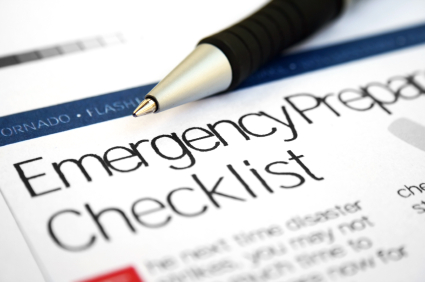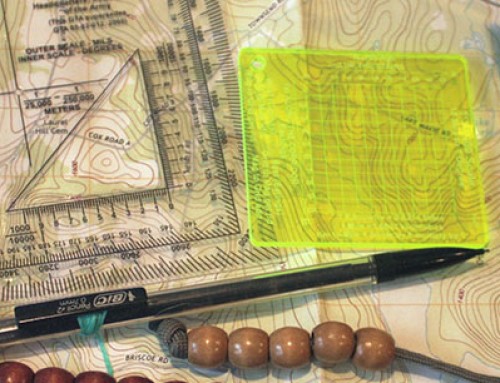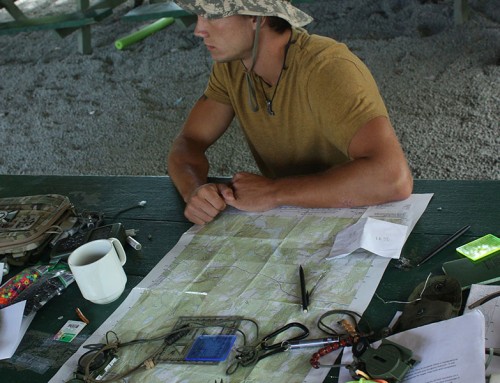From time to time, you will find yourself in the forecast impact zone of an approaching storm. What follows is a list of things that the IrminFyrd suggests you should take into consideration before the storm arrives.
Be prepared for the power grid to fail.
Storm winds often uproot trees, And trees mistakenly believe that people put power lines up to catch falling trees. Often, this results in power outages, which can sometimes last for a week or more. Prepare for the worst, it can’t hurt.
After the power goes out, ensure that your important appliances are unplugged or shut off at the breaker to prevent them from becoming damaged by surges. Leave one light on so you know when the power comes back on.
Gas pumps won’t work in a blackout.
Before the storm hits you should fill up your car’s gas tank.
Remember, if you must drive during a blackout, you must think like a pilot. Only travel as far from a working gas station as a little less than HALF of your tank of gas will take you, so you have enough gas to make it back.
If you own a generator, make sure it has enough fuel to power your essentials for at least several days.
If you own a chainsaw, make sure you have enough 2-stroke oil for it in case you have to clear downed trees. A chainsaw is good to have anyway, in case of downed trees along your evacuation route, or along a route you need to use to get to a person you care about.
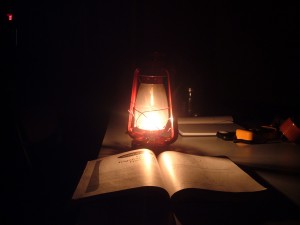

A small, portable camping stove is important for boiling water and cooking if your home stove is electric or if you have to evacuate.
Use common sense when storing and handling fuels.
Water distribution may become unreliable
If you are on well water, your well pump will stop working as soon as the power fails. Unless you have a generator, or an alternate pump (such as a hand pump) you will have no water. In areas prone to flooding, the water supply can become contaminated. Sewers may even back up into town aquifers.
Before the storm hits, put away at least one gallon of drinking water per person in your family for each day you anticipate being effected. Empty 2 liter soda bottles work well for this.
Clean your bathtub, and then fill it up with water. Scoop water out of the tub to wash dishes and to take “bird baths”. Do not wash directly in your water supply, take out what you need. Keep a bucket or a pot in the bathroom to fill your toilet’s tank from the bathtub.
Do your laundry before the storm hits.
ATM machines run on electricity;
Go take some money out now. You might need it and it does no good stuck inside a dead bank machine.
Stores will probably close
Sadly, without a cash registers to tell them, many cashiers cannot figure out how much change to dispense. Most stores just close when the power is out. The few stores that remain open will run out of essential supplies very quickly.
Stock up on Non perishable food. Canned food, things that do not go bad. At least 3,000 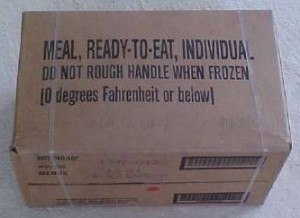

Your refrigerator will stay cold for approximately 24 hours IF you do not open the door. Remove anything that does not absolutely need to be refrigerated. Bottles of soda, for example. Otherwise, you can’t have them until it is time to “break the seal” and open the fridge.
If your stove is electric, you might want to cook before the storm hits and put the food in the fridge or a cooler with Ice.
Medicines will be hard to re-stock during an emergency. If you are caring for someone who is on vital medication, ensure there is a good stockpile. Persons on oxygen should request extra deliveries of bottled oxygen.
Child care supplies: Make sure you are good on diapers, wipes, formula, and some toys for entertainment.
Pet care: Food, medicine, travel carrier in case of evacuation.
Make sure your flashlight works and you have at least 2 extra sets of batteries. It will be the first thing you look for when the lights go out.
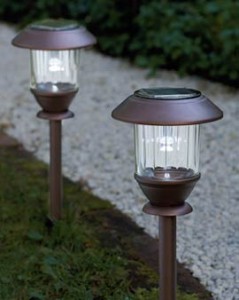

Prepare a first aid kit and learn how to use it properly.
When the power goes out, usually so does your heat. If you have a fireplace or wood stove, make sure you have dry wood for it. Also, make sure each person has a warm blanket or sleeping bag. This is especially important if evacuation is necessary.
Communications considerations:
Cell phone towers have emergency backup power supplies. Cell phones will make calls for a few days following a failure of the power grid. Most cell towers will continue to send and receive data (internet). Make sure you charge your phone before the storm. If you don’t have one, you should get a 12V car charger for your cell phone.
Less and less people still have them, but if you have a land line phone in your home, it will work in a blackout. Just make sure it isn’t a “cordless” phone that needs a power supply. Have an “old school” regular phone on hand in that case.
A good battery powered AM/FM radio is essential for keeping you updated on weather conditions, evacuation orders and instructions.


